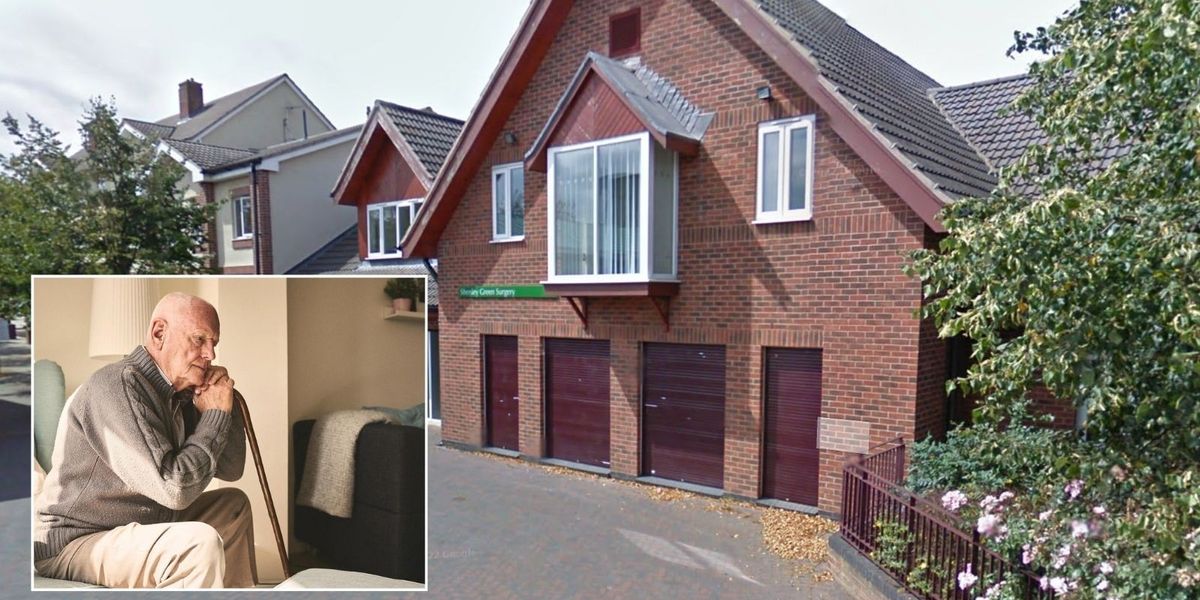The Unbelievable Case of a Pensioner Declared "Deceased" by His GP
In a bizarre and distressing incident, a 69-year-old pensioner named Alan Rocket faced an unimaginable situation when he attempted to re-register at his former GP surgery, only to be informed by staff that he was "already dead." This shocking revelation left Rocket, who is currently in remission from bowel cancer, feeling completely stressed and upset. The incident raises important questions about patient records, communication within healthcare systems, and the emotional toll such errors can take on individuals.
A Distressing Encounter
Alan Rocket’s ordeal began when he sought to re-register at the Shenley Green practice in Birmingham. Having battled bowel cancer for the past five years, Rocket was eager to ensure that his medical records were in order as he continued his recovery journey. However, upon arrival, he was met with an unexpected and distressing response from the reception staff. They informed him that he was deceased, a statement that left him in disbelief and distress.
"It was really upsetting," Rocket recounted. "Five years ago this month, I was diagnosed with bowel cancer. I’m in remission now, but I’m still not 100 percent clear. So to be told I was dead completely stressed me out." The emotional weight of such a declaration was compounded by the fact that he had to explain the situation to his daughters, who were equally upset by the news.
The Quest for Proof of Life
In an effort to resolve the situation, Rocket was forced to return home to retrieve his passport as proof of identity. Upon his return to the surgery, he presented his ID with the simple yet poignant declaration, "Here you go, I’m alive." Despite this, the staff informed him that he would still have to wait another 24 hours before he could officially register at the practice, even with the necessary identification in hand.
Rocket described the reception staff’s demeanor during the encounter, noting that they appeared to "smirk" while delivering the news of his supposed death. Such insensitivity in a healthcare setting is particularly troubling, as it highlights a lack of empathy and professionalism that patients should expect from their medical providers.
A Technical Glitch?
In response to the uproar surrounding Rocket’s experience, a spokesperson for the Shenley Green practice attributed the incident to a "technical issue" with patient records. While technical errors can occur in any system, the implications of such mistakes can be severe, especially for patients with ongoing health concerns. The surgery also issued an apology for any inconvenience caused, but the emotional impact on Rocket and his family cannot be understated.
This incident is not an isolated case. Another patient, John Ashcroft, who is in remission from prostate cancer, faced a similar situation when he received a call from his GP in late July informing him that he was deceased. Ashcroft’s experience underscores the systemic issues that can arise within healthcare systems, particularly concerning patient record management.
The Broader Implications
The experiences of Rocket and Ashcroft highlight a critical need for improved communication and accuracy within healthcare systems. Errors in patient records can lead to significant distress and complications for individuals who are already navigating the challenges of serious health conditions. As healthcare providers increasingly rely on digital records, it is essential that they implement robust systems to prevent such errors from occurring.
Moreover, the emotional toll of being mistakenly declared deceased can have lasting effects on patients and their families. The stigma and fear associated with such a declaration can exacerbate existing health issues and create unnecessary anxiety.
Conclusion
Alan Rocket’s experience serves as a cautionary tale about the importance of accuracy and empathy in healthcare. While technical glitches can happen, the impact on patients’ lives is profound and should be taken seriously. As healthcare systems continue to evolve, it is crucial that they prioritize the well-being of their patients, ensuring that such distressing incidents become a thing of the past. For Rocket, the journey to reclaim his identity and health continues, but the scars of this experience will likely linger long after the technical issues are resolved.
